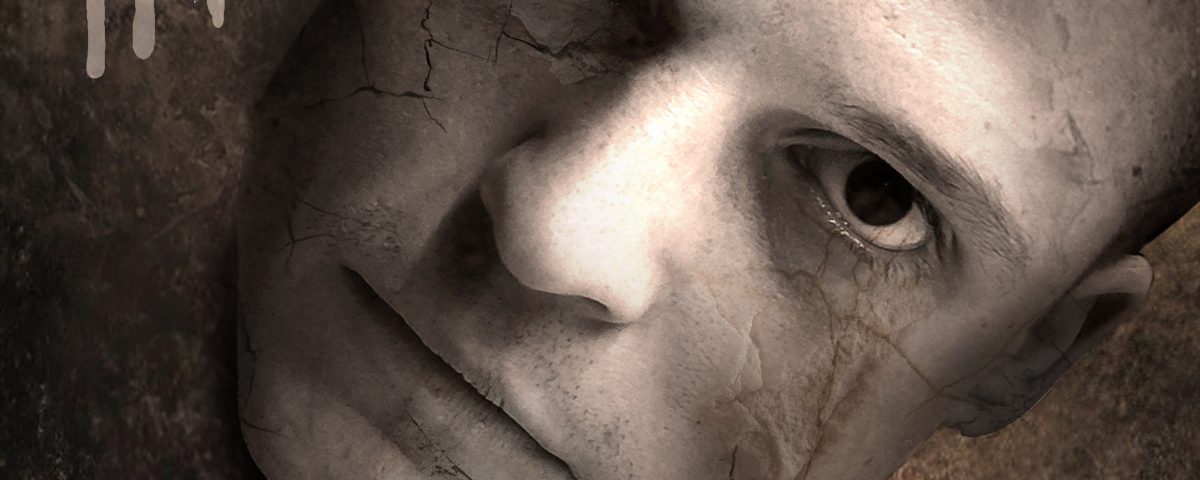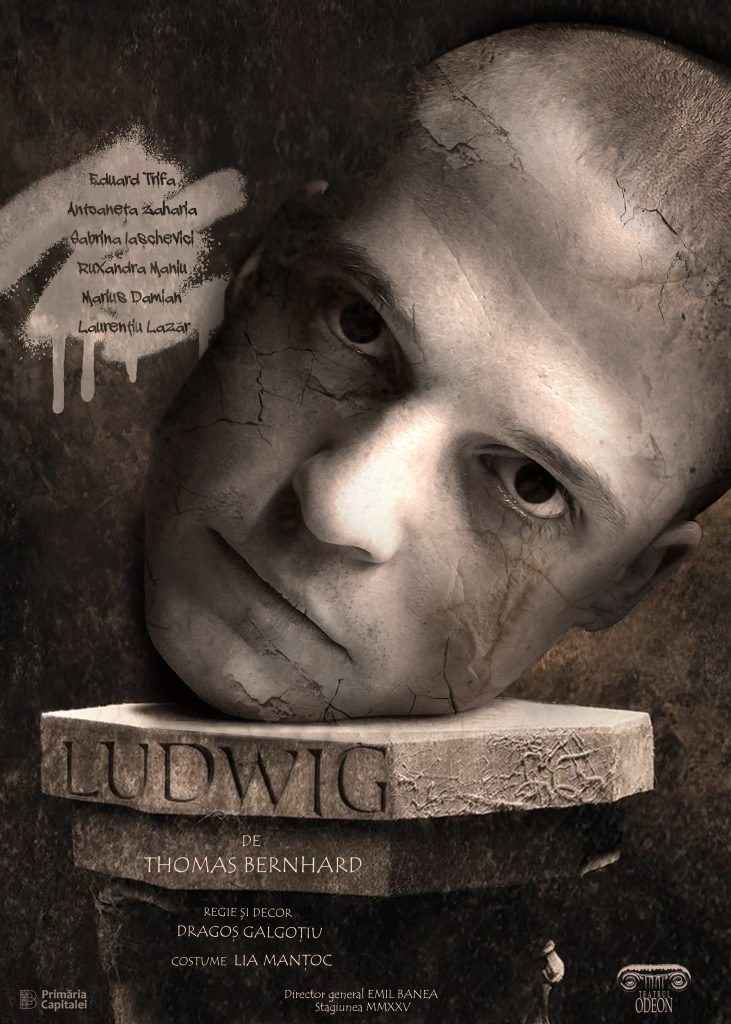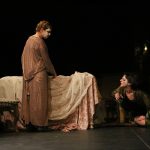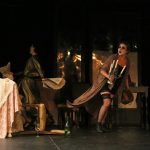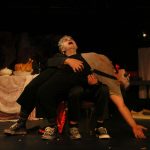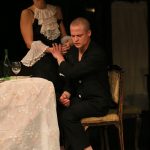by Thomas Bernhard
after „Ritter, Dene, Voss” and other writings
Two actress sisters await the return of their rebellious brother, Ludwig, a young philosopher who has come back home after a bizarre and scandalous retreat in a psychiatric hospital.
The sisters’ dialogues burn with tension; the story of waiting turns burlesque and, at times, painful.
The childhood home seems like the perfect setting for an idyllic family lunch, but Ludwig is a deeply strange character, and the long-awaited lunch spirals out of control.
A hypnotic, intense, and provocative play.
Eduard Trifa
Antoaneta Zaharia
Sabrina Iașchevici
Ruxandra Maniu
Marius Damian
Laurențiu Lazăr
Direction and set design Dragoș Galgoțiu
Costumes Lia Manțoc
Graphics Sabina Spatariu
Soft sculpture Ovidiu Poițelea Hariuc
“Ștefan Iordache” Theater Festival, Caracal, June 16, 2025
Thomas Bernhard writes theatre with fury; his irony is always startling, his verbal cascades unleash an enormous theatrical storm on stage. His satire is both delicious and a form of meditation.
Ritter, Dene, Voss, the play that serves as the basis for this performance, references a real historical figure, Ludwig Wittgenstein, the rebellious genius of 20th-century philosophy.
For Bernhard, Ludwig becomes an object of study, the philosopher as artist, his thinking placed on the dissection table of theatre. He is portrayed as a human figure belonging to a rare species. Although the text is rich in reflective substance, its absurd humor and sarcastic dialogues turn it into a tragicomedy, giving it a strong emotional impact as well.
Thomas Bernhard (1931–1989), Austrian playwright, novelist, and essayist, is considered one of the most important and controversial German-language authors of the 20th century.
His work is marked by a distinctive style, long monologues, obsessive repetitions, a deeply pessimistic view of Austrian society, and a constant meditation on art and the human condition.
Bernhard revolutionized Austrian theatre with his provocative style. His plays are now performed on major European stages and continue to inspire contemporary dramaturgy.
Monumental, unsettling reproductions of paintings by Wanda Decca Maiorescu, alongside a collaboration with Alexandru Rădvan, an important contemporary painter and sculptor and the surprising on-stage appearance of Ludwig Wittgenstein as a character, lift the performance beyond the conventional boundaries of a theatrical experience.
Show recommended by the Austrian Cultural Forum
Photos by Mihaela Marin


